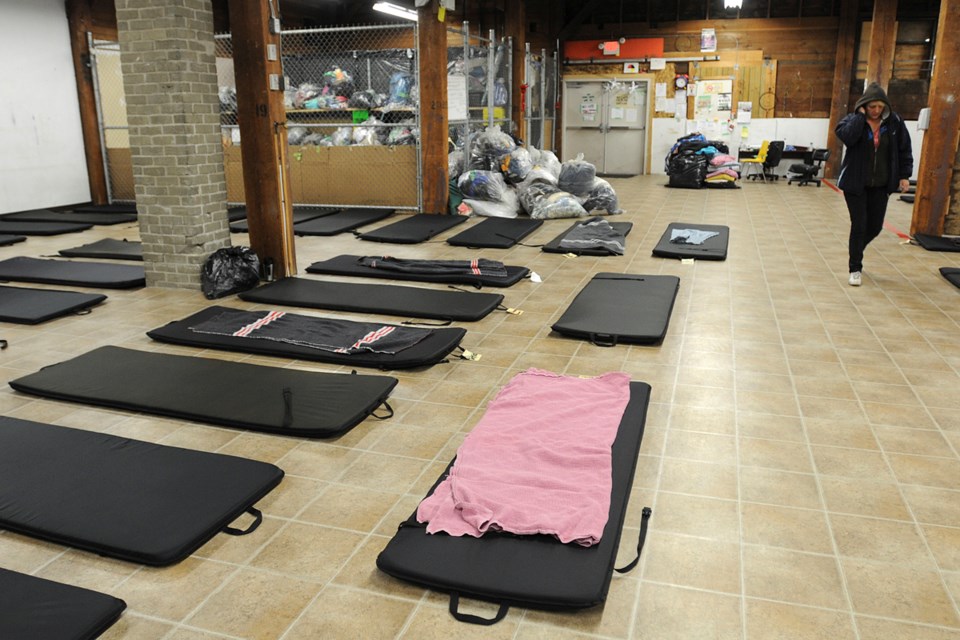This could just be the latest example of Christy Clark’s government trying to get around the Freedom of Information Act and avoid some bad press.
As you know the premier and her crew are still trying to regain their footing after the latest blistering report called “Access Denied” from FOI Commissioner Elizabeth Denham.
Recall that Transportation Minister Todd Stone had practically raised the practice of “triple deleting” government information to the level of a religious sacrament. Now he is displaying public acts of contrition on his particular Road to Damascus leading to the next provincial election.
Then a few days ago we learned that B.C. Housing, the provincial government’s housing management commission, is no longer collecting data regarding the number of people being turned away at homeless shelters across the province.
They had collected this information for at least the past decade. They actually stopped the practice a year ago but apparently didn’t bother to tell folks running those shelters or the City of Vancouver. It came to light now because of a Freedom of Information request by NDP MLA for Vancouver-Point Grey, David Eby.
Until last year, homeless shelter operators were required to gather the information as a condition of their provincial funding. You have to assume, as the line about good governance goes: If you don’t measure it you can’t manage it.
Of course if you don’t measure it and have that information at hand, any request for information under the FOI Act would get a response of “no documents available.” So nobody could really tell if you are screwing up.
Given the government’s track record, that would certainly be one likely explanation about why B.C. Housing shut down information gathering.
They are once again being criticized for under supplying shelter beds this coming winter. Lookout Society says there is a deficit of more than 400 shelter beds in Surrey and they are getting funding for only 40.
But in a letter from B.C. Housing to the NDP, the organization’s CEO Shayne Ramsay chose to say the practice stopped because “that data may be subject to data entry errors and duplication.”
Ramsay listed a number of ways in which the numbers could be suspect, not the least of which is the fact that one person may apply at a number of shelters until he or she finds an empty bed. That person would be counted multiple times as a “turnaway.”
However, as shelter providers who still find collecting the data useful agree, if the number of people turned away doubles or drops by 50 per cent it would at least raise some serious questions about future planning.
And don’t forget, there are a number of communities in B.C. where there is only one shelter, so a person turned away for whatever reason still has only the street as an alternative.
Ramsay also notes people may be turned away because of their behaviour or they may be inappropriate — a man applying at a women’s shelter. But I’m told the form the shelter providers have been filling in allows for those explanations.
Further, one long-time service provider reviewing Ramsay’s letter and his reasons around people being excluded particularly because of behaviour, said all the more reason to gather the data. This could indicate there is a “high barrier” service provision that would screen out folks because of behaviour and you would therefore be screening out the hard to house.
I should also note shelter providers who are still collecting the data don’t just use it for their own future plans. They share it amongst other shelter providers to get a more accurate picture of what is happening in their communities and how, collectively, they can fill in obvious gaps.
You won’t, by the way, find them being too harsh in their criticism on B.C. Housing for no longer gathering the data so that everyone from city governments to social agencies to other shelter providers can use the figures as one tool when dealing with the most complex and spreading problem of homelessness.
They are too dependent on the funding they receive.
Biting this particular hand has never resulted in anything but retribution.
So B.C. Housing will likely hold its ground. And we can only have our suspicions as to why.
agarr@vancourier.com
@allengarr



